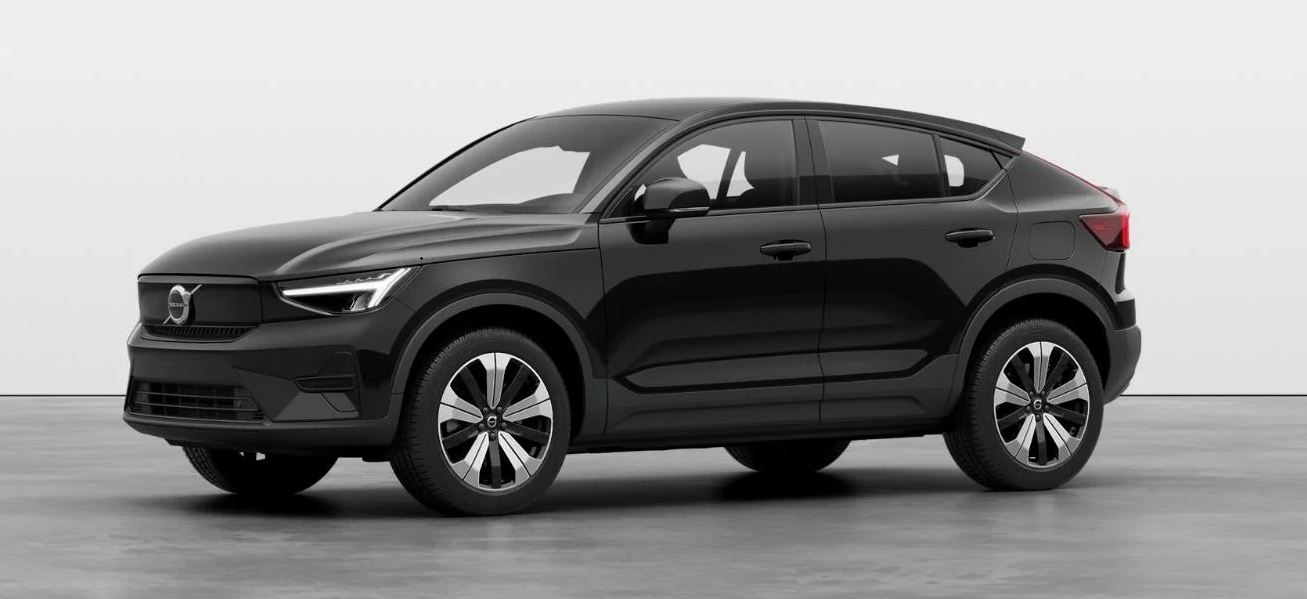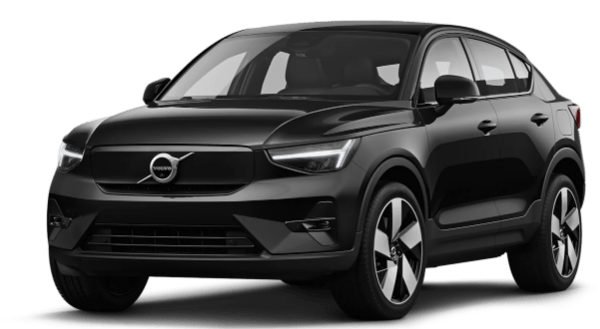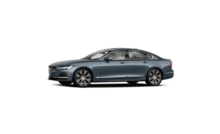Home button for the centre display. There is always the option to go back to home view by pressing the home button.
Overview of the symbols that can be shown in the centre display’s status bar. The status bar shows activities in progress and, in some cases, their status. Not all symbols are shown all the time due to the limited space in the status bar. Here are some examples.
| Symbol | Specification |
  | Connected to the Internet. |
| R | Roaming activated. |
  | Bluetooth device connected. |
  | Information sent to and from GPS. |
| 15:45 | Clock. |
  | Wireless phone charging. |
Moving apps in the centre display
The app view is made up of four tiles where the apps can be moved and organised as preferred. Expand a tile for access to apps other than just the ones displayed. New apps installed are placed in app view.
Open app view.
- Press

 .
. - Tap on an app and hold it down.
It is then possible to move it. - Drag the app to the preferred place in the app view.
Swipe across the screen to scroll up or down in the view.
Note
A tile cannot be left empty without apps.
Note
Apps cannot be added to locations that are already occupied.
Keyboard in the centre display
The centre display keyboard makes it possible make entries using keys. It is also possible to “draw in” letters and characters on the screen by hand. The keyboard can be used to enter characters, letters and numbers, e.g. to write text messages from the car, enter passwords or search for articles in the digital owner’s manual.
The keyboard is only shown when entries can be made on the screen 

Hides the keyboard. If this is not possible, the button is not shown. 

Changes keyboard mode to write letters and characters by hand instead.
Pressing the confirmation button above the keypad confirms the entered text. The appearance of the button differs depending on context.
Variants of a letter or character
Variants of a letter or character, e.g. é or è, can be entered by holding down the letter or character. A box is displayed showing possible variants of letters or characters. Press the required variant. If no variant is selected, the original letter/character is entered.
Enter the characters, letters and words manually in the centre display
The centre display keyboard allows you to enter characters, letters and words on the screen by “drawing” by hand. 

Press the button on the keyboard to change from typing with the keys to entering letters and characters by hand. 
 Return to the keyboard with regular character input.
Return to the keyboard with regular character input.
Writing characters/letters/words by hand
To make it possible to switch between different languages for the keyboard, the languages must first be added under Settings.




